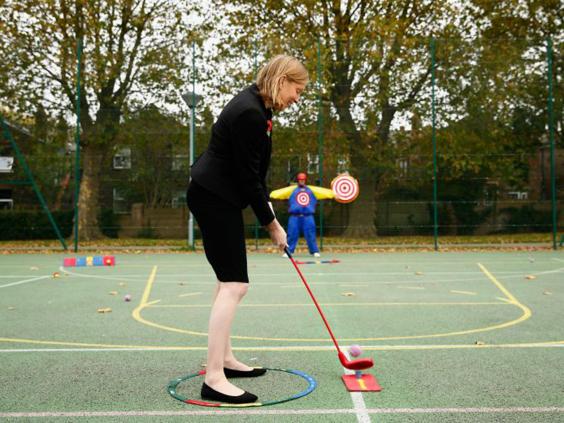New UK sports strategy aims to attract physically inactive people to support roles – The Independent
Britain’s first sports strategy in 13 years will aim to get physically inactive people involved in support roles, such as preparing pitches, and help disaffected young people by highlighting initiatives such as police running football clubs.
A New Strategy for Sport is about to be drafted and will be published before Christmas. A consultation, launched in August, has attracted more than 3,000 submissions.
The previous strategy, from 2002, has been criticised for focusing on participation, encouraging those who already enjoyed sport to play more often. Nevertheless, improvements were made up to the London 2012 Olympics: 500,000 more women, for example, play sport than in 2005.
But the Government is concerned that levels have declined since the Olympics and wants to look at the benefits of sport beyond participation. Tracey Crouch, the sport minister, who has coached a girls’ football team, believes the strategy can be broadened to get people involved in other aspects of sport, which would strengthen communities.
The consultation document stated: “Government support for sport is about more than simply the number of people that play sport”, citing “improved health outcomes from becoming more physically active… a stronger sense of social integration or a reduction in reoffending linked to participation in a sporting programme.”
A Whitehall source said: “A savvy police force, for example, will look to run a football club for teenagers at 9pm on Friday nights in an area prone to antisocial behaviour. Also, [the strategy is] about getting those completely disengaged with sport to do something, such as help preparing a pitch, which would connect them to the community.” Barry Horne, chief executive at the English Federation of Disability Sport, said that involving people with physical or mental disabilities as officials, or in support roles, would be useful provided it did not restrict their opportunities to play sport.
“It could be an additional thing that some people would choose,” he said. “The positive of this strategy is the switch in emphasis to looking at people who are inactive: in the past, the approach was looking at people who are already active [and increasing their physical activity].”
A submission from the Youth Sport Trust speaks of a need to “instil a love of sport based on a broad experience of participation, leading and volunteering in traditional and non-traditional sports”. The trust also urges the Government to make “physical literacy” as much of an educational priority as reading and writing. It suggests training and support for pre-schools and nurseries to boost children’s physical activity.
A major focus of the strategy will be on improving women’s participation in sport. Ms Crouch said recently in Parliament: “We know that 14, for example, is a key age when girls start to lose interest in sport. It is important that schools and clubs… understand the competing pressures in a girl’s life at that age and can support them into sport and physical activity at appropriate points.”
Ruth Holdaway, chief executive of Women in Sport, added: “Our consultation response argues that for sport to achieve its greatest social impact, public investment should focus on women and, in particular, on those who are most under-represented in the current landscape.
“We believe that the key groups of seven- and eight-year-old girls, girls transitioning between primary and secondary school, and women who currently do no or very little sport and physical activity should be the priority for public investment. Alongside this, any sport body receiving public funding should be required to specifically address women and girls’ participation and leadership within its strategy.
“Sport has huge power for good, but public funding must be seen to benefit those who need it most; a focus on women and girls is imperative if the Government is serious about making the greatest possible impact.”
Jamie Brookes, a trustee at the Women’s Sport Trust, wants to raise media coverage and encourage global brands to back women’s sport. Underlining the importance of role models and the media in shaping aspiration, he said: “If we can’t read or watch the success of our female athletes how can we expect to create a better landscape for diversity in sport?”
A submission from Baseball Softball UK argued for a greater focus on unusual sports that attract those who feel alienated by mainstream activities. It said: “As non-traditional sports in Britain, but as sports known and played around the world, baseball and softball are particularly appealing to groups not traditionally well served by sport, such as [minority ethnic] and LGBT.”
Ms Crouch said: “Sport has a big impact on improving people’s lives: the health benefits are obvious, but it also brings communities together and [contributes] to the economy. Our new strategy will look at what more can be done to encourage people to get involved in sport.”
- More about:
- Grassroots Sport





